10 Common Vitamin Deficiencies and What to Do About Them
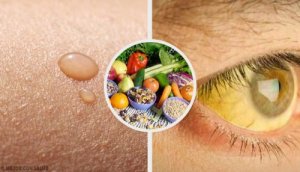

Reviewed and approved by the doctor José Gerardo Rosciano Paganelli
Do you have acne? What about bad breath? A lot of common health problems are caused by a lack of vitamins that you naturally get in the food you eat. In today’s article, we’ll look at some of these common vitamin deficiencies and how to prevent them.
1. Acne
Acne is a very common issue characterized by the presence of pimples on your face or body. It’s especially common during adolescence. However, if acne doesn’t go away or comes back after this stage, it may be due to a deficiency of vitamin A, B2, B5, C, or D.
These vitamins directly affect proper hormonal functioning. Some foods that you should be eating are asparagus, avocado, citrus fruits, peppers, and carrots.
“Take a look at this too: Is Acne Leaving Marks on Your Face? Learn About 5 Face Masks for Pock Marks”
2. Bad breath

One of the most common vitamin deficiencies is vitamin B deficiency, which is especially common among vegetarians.
This vitamin is vital for good digestion. When it is lacking, you may have a reduced amount of enzymes in your body that fight bacteria in your mouth and digestive tract.
Nutritionists indicate that 50 mg of niacin a day will help prevent bad breath. Recommended foods are: chicken, fish, tomatoes, whole grains, and mushrooms, among others.
3. Cracked lips
Your lips are an external organ of your body that doesn’t usually get affected by vitamin deficiencies.
Biologically, your lips require more attention and care during the winter. That’s because your skin creates natural oils that give them the moisture they need, but the moisture is lost in cold weather.
Cracked lips can be prevented with vitamin E, which acts as a powerful antioxidant. The best ways to get this vitamin is through these oils: wheat germ, almond, sunflower, and olive oil.
4. Dandruff
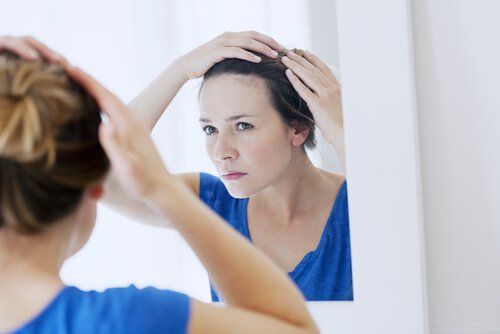
Dandruff comes when there is an excess of dead skin cells on your scalp. We all have a certain amount of dead skin cells and it’s normal, but if there’s too much, there’s a problem.
The main causes of dandruff are seborrheic dermatitis, too much shampoo usage, psoriasis, a fungus, and deficiencies in vitamin B, zinc, and magnesium.
Recommended foods to eat are: mustard, almonds, dark chocolate, lamb, and leafy green vegetables.
5. Hangnails
You’ve probably noticed more hangnails during the wintertime.
This is because cold weather significantly dries out your skin. This effect is magnified if you use harsh chemical products or continually have your hands immersed in water.
Vitamin deficiencies that cause this problem can be fixed by consuming protein, folic acid, and vitamin C.
6. Dry skin
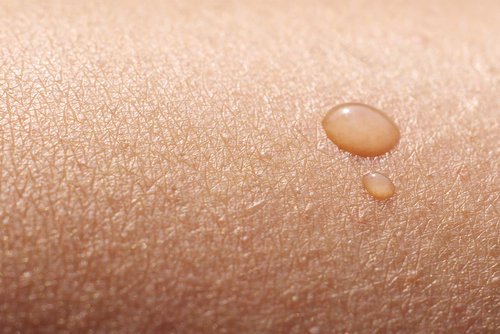
Millions of people are on the search for a way to keep their skin looking soft and moisturized. Remember that dry skin may be a genetic condition passed down through your family.
If you’ve noticed dry skin only lately, or if you’ve realized that you haven’t been eating a very varied diet, you may have vitamin deficiencies and you may be not drinking enough water.
If this is you, try to add in foods high in vitamin A and C to help restore your skin.
7. Athlete’s foot
Vitamins D2 and D3 are necessary for proper skin care. A deficiency in either can give rise to several kinds of conditions including athlete’s foot.
These two vitamins require calcium in order to be properly absorbed. You must consume 10 micrograms of vitamin D a day, but most people get in only half that or less.
8. Jaundice
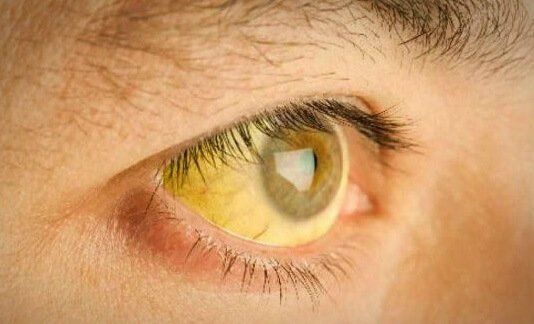
This condition makes the whites of your eyes and your skin turn a yellowish color due to an excess of bilirubin. This substance accumulates when your liver isn’t working normally and gives rise to the discoloration.
Jaundice may present at any age. Its causes include blood diseases, genetic syndromes, hepatitis, infections, and certain medications. Vitamin deficiencies that cause it are in A, C, E, B12, and B6.
9. Pale skin
The pigmentation of your skin happens due to the presence of melanin, which depends on genetic factors, how much time you spend in the sun, etc.
There are also common vitamin deficiencies that can negatively affect the color of your skin.
Vitamin C helps produce collagen. A lack of this vitamin causes extreme paleness, damage to your skin and blood vessels, and even tooth loss. All you need is 80 mg of the vitamin a day.
A lack of folic acid or vitamin B9 can also make your skin lose pigmentation. This vitamin is vital in the production of energy and red blood cells.
And if you don’t consume enough vitamin B9, you’re at risk of becoming anemic, another situation that presents with pale skin. You should consume 400 mg a day.
“We recommend reading: 8 Foods to Replenish Collagen in Your Skin”
10. Problems seeing
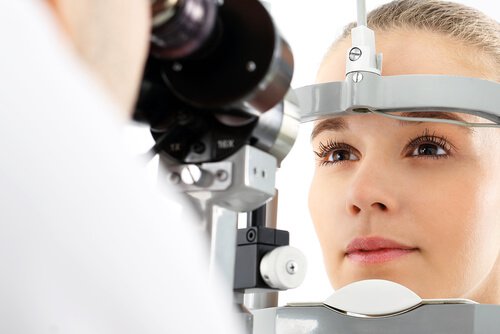
Antioxidant vitamins (A, C, E, and beta-carotene), along with B complex vitamins, are very important for your eye health.
Even a small deficiency of vitamin A can cause ocular fatigue, sensitivity to light, dryness, and a greater risk of getting eye infections.
When it’s a severe deficiency, there may be ulcers, problems in your cornea, and blindness, in the worst cases. Vitamin A is essential for good night vision.
In addition, deficiencies in B complex vitamins cause sensitivity to light, paralysis in your eye muscles, a burning sensation, and excessive tear production.
All cited sources were thoroughly reviewed by our team to ensure their quality, reliability, currency, and validity. The bibliography of this article was considered reliable and of academic or scientific accuracy.
- Umar M., Sastry KS., Ali FA., Al Khulaifi M., et al., Vitamin D and the pathophysiology of inflammatory skin diseases. Skin Pharmacol Physiol, 2018. 31 (2): 74-86.
- Katakam PK., Hegde AP., Venkataramaiahyappa M., Vitamin B12 deficiency: unusual cause of jaundice in an adolescent. BMJ Case Rep, 2018.
- Saari JC., Vitamin A and vision. Subcell Biochem, 2016. 1: 231-259.
This text is provided for informational purposes only and does not replace consultation with a professional. If in doubt, consult your specialist.








